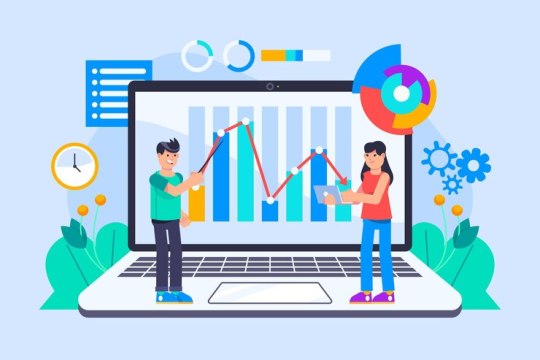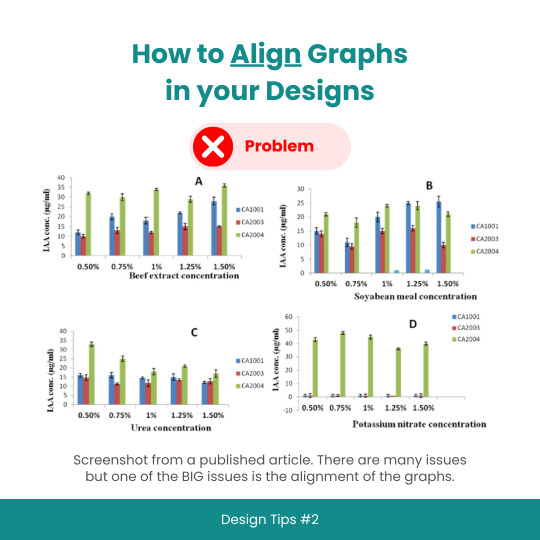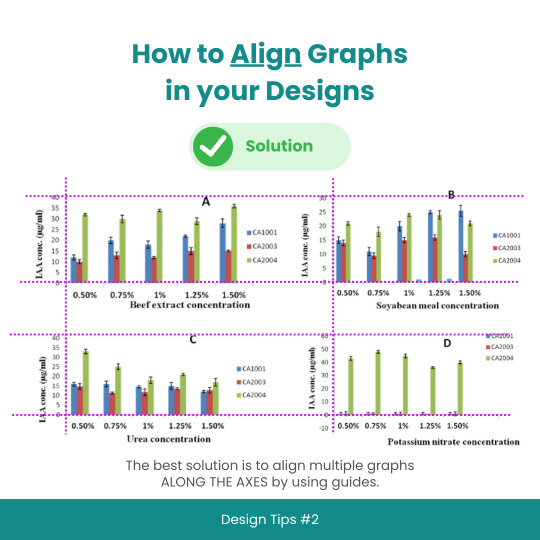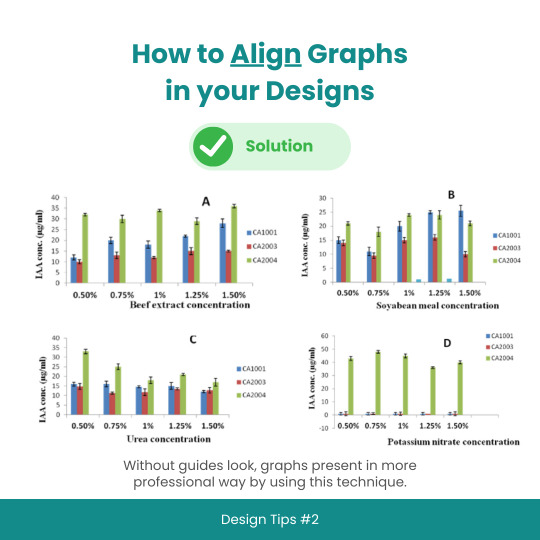#Statistics for Data Analytics
Explore tagged Tumblr posts
Text
What is the Importance of Statistics for Data Analytics in the UAE?
In today's fast-paced digital world, data is being generated at an unprecedented rate. From businesses to governments, organizations in the UAE are increasingly relying on data analytics to make informed decisions. However, raw data on its own doesn’t offer much value unless it's analyzed properly. This is where Statistics for Data Analytics comes into play, as it helps transform raw data into meaningful insights that can drive strategic decisions. Let's dive into the significance of statistics in the realm of data analytics and why it is essential for professionals in the UAE to grasp these concepts.

Understanding Statistics for Data Analytics
Statistics for Data Analytics is a crucial foundation for any data-driven decision-making process. By applying statistical methods, analysts can interpret large datasets, identify trends, and uncover patterns that would otherwise remain hidden. These methods are used to summarize the data, determine relationships between variables, and even predict future outcomes. In the context of data analytics, statistics serves as a bridge between raw information and actionable insights, which is essential for businesses in the UAE, where economic growth relies heavily on data-driven strategies.
Whether it's analyzing customer preferences, market trends, or operational efficiencies, statistical techniques enable data analysts to derive meaningful conclusions from large datasets. This helps companies in the UAE optimize their operations, improve customer experiences, and gain a competitive edge in an increasingly data-centric world. Furthermore, businesses in the UAE can leverage statistical methods for tasks such as forecasting demand, identifying risks, and developing marketing strategies that resonate with their target audience.
How Statistics for Data Analytics Enhances Decision-Making
One of the most significant contributions of Statistics for Data Analytics is its ability to enhance decision-making. Data analytics enables decision-makers to base their choices on empirical evidence rather than intuition alone. In the UAE's business landscape, where the pace of change is rapid, companies need to make informed decisions quickly. Statistical analysis empowers businesses by providing accurate data-driven insights that highlight potential opportunities or risks.
For instance, statistical techniques such as regression analysis or hypothesis testing help organizations in the UAE determine the impact of different variables on their performance. This can be particularly useful in industries such as finance, healthcare, retail, and technology, where data-driven decisions directly influence profitability and growth. By using statistics to make informed choices, companies are more likely to minimize errors, reduce risks, and maximize their chances of success.
The Role of Statistics in Big Data and AI in the UAE
The UAE has become a hub for innovation, with significant investments in big data and artificial intelligence (AI) across various sectors. In this context, Statistics for Data Analytics plays an indispensable role. Big data often comes in the form of complex and unstructured information, and statistical techniques are used to clean, organize, and analyze this data to extract valuable insights.
Furthermore, AI and machine learning models rely heavily on statistical principles to make predictions and classifications. For businesses in the UAE, incorporating statistical analysis into their AI-driven processes can improve the accuracy of their models and lead to better business outcomes. As AI continues to advance, professionals with expertise in statistics are essential to unlock the full potential of these technologies.
In conclusion, Statistics for Data Analytics is fundamental for professionals and organizations in the UAE looking to harness the power of data for strategic advantage. With its ability to enhance decision-making and contribute to innovations in big data and AI, mastering statistics is crucial. At ambeone, we understand the importance of data analytics and offer advanced solutions to help businesses in the UAE make data-driven decisions with confidence.
0 notes
Text
reply to @bini-kei (this is not hate, i purely have statistics to display)
[Additional information; i am very passionate about statistics and mathematics, this is purely a chance for me to further engage this, provide information, and prove a point. All my data is drawn from Wikipedia and UCLA statistics]
I am using the term "Queer" as someone who falls under the LGBT+ umbrella, rather than as a synonym for "weird" by Oxford definition.
--
The original post made stated as so;
"To the person who said that making all the pjo characters queer is unrealistic:
Making all of them straight is unrealistic too"
My contradicting point is as following;
It is not unrealistic, but rather the chances of the majority of the characters being queer in some form goes against most statistics.
I am not homophobic, i just need an opportunity to talk about data and statistics and debate in some way. I really love statistics and probability.
--
Gallup 2014 statistics state that 4.5% of adult-americans identify as queer in some way, and general surveys spanning over multiple years from western cultures "find, on average, that about 93% of men and 87% of women identify as completely heterosexual".
Now this is purely in western culture, but to narrow down the statistics to make this as accurate as possible, i will draw data from individual states and countries, and mainly focus on the 7 + Nico and Will.
Going in alphabetical order;
Annabeth Chase.
The Riordan wiki states that she is originally from Virgina with a swedish background, but i will focus on her place of origin being Virgina now.
5.9% of adults in Virgina identify as queer, meaning that statistically, the chances of Annabeth being queer, are 5.9%.
The population of Virgina is 8,624,511 as of 2022, though the data was collected in 2021, meaning it is not outdated.
5.9% of 8,624,511 ≈ 50,8846
Frank Zangh
A survey conducted by SC [statistics Canada] in 2014 stated that 4% of the adult population in canada identified as queer in some way - or "LGBT" as stated in the survey.
This means that the chances of Frank being queer are 4%.
To spare you time, these are all the data collected (holding Nico and Hazel for purposes i will explain)
Annabeth Chase - 5,9% Frank Zangh - 4% Jason/Thalia Grace - 9.3% Leo Valdez - 5.1% Percy Jackson - 5.5% Piper Mclean - 6% Will Solace - 5.1%
Now since both Hazel and Nico are from the 1930's - 1940's, gathering data from that period of time was very difficult. Little to no data was collected from this period of time as Homosexual marriages and/or activities were either highly discouraged, unrecognised, or banned in the majority of places (with the exception of the Faroe islands, Greenland, Sweden, Poland, Etc.)
With modern data it would state as following;
Hazel Levesque - 5.7% Nico Di Angelo - 2.4% (with some contradictions)
Ultimately, adding all of these changes together give us 5,4%
Which gives us the average percentage for the chances of the desired outcome, and i will use this cause Lord i am so tired of all of these equations i've been doing - you have no idea.
Now, the chances of every each of the 9 being queer, is approximately
0.0000000073%.
#statistics#percy jackson fandom#percy jackson#probability#mathematics#mathblr#annabeth chase#frank zhang#hazel levesque#leo valdez#jason grace#thalia grace#pjo thalia#nico di angelo#niccolo di angelo#heroes of olympus#this is a girlblog#piper mclean#hoo#will solace#william solace#queer#data#data analytics
19 notes
·
View notes
Text

#tua#the umbrella academy#klaus hargreeves#luthor hargreeves#diego hargreeves#allison hargreeves#five hargreeves#ben hargreeves#viktor hargreeves#victor hargreeves#pogo hargreeves#grace hargreeves#reginald hargreeves#statistic#statistics#datascience#data analytics#data analysis#data
21 notes
·
View notes
Text
American statistics enthusiasts RISE UP. These next few days aren’t going to be about the results of the election, they’re about watching our boy Kornacki go crazy in front of that touch screen in khakis. Blessed be this data analyst freak that they put on the national 24 hour news cycle. Godspeed Steve🫡

#America#kornacki#steve kornacki#election#2024 presidential election#2024#presidential debate#nbc#also he’s gay so that’s cool too I guess#khaki pants#khaki#data analyst#statistics#data#data analytics#election data#politics
14 notes
·
View notes
Text
youtube
Statistics - A Full Lecture to learn Data Science (2025 Version)
Welcome to our comprehensive and free statistics tutorial (Full Lecture)! In this video, we'll explore essential tools and techniques that power data science and data analytics, helping us interpret data effectively. You'll gain a solid foundation in key statistical concepts and learn how to apply powerful statistical tests widely used in modern research and industry. From descriptive statistics to regression analysis and beyond, we'll guide you through each method's role in data-driven decision-making. Whether you're diving into machine learning, business intelligence, or academic research, this tutorial will equip you with the skills to analyze and interpret data with confidence. Let's get started!
#education#free education#technology#educate yourselves#educate yourself#data analysis#data science course#data science#data structure and algorithms#youtube#statistics for data science#statistics#economics#education system#learn data science#learn data analytics#Youtube
4 notes
·
View notes
Text
oh k-science, we're really in it now
#personal#thank god i have my blorbos lmao#sooooo the other shoe has dropped on the math stuff at work#i have 2 bosses and. turns out they dont agree#one boss is really excited about it. other boss thinks it's gonna be a money pit#i did not know this until today's team meeting!#so when i mentioned that i was planning on setting up statistics software she immediately started asking questions#essentially putting me in the position of having to justify the expense of paying me to do this#they set up this fancy analytics dashboard but like. all anyone is doing with it is eyeballing things as far as i can tell#and like. thats fine. but she wants me to also use it#and it's like. if you want me to do proper stats i need the raw data#im not at risk of losing my job here but i am at risk of losing the chance to do math at work & get data experience#urgh. would like to lie face down for a while#im not politically savvy enough for this bro
2 notes
·
View notes
Text
The Skills I Acquired on My Path to Becoming a Data Scientist
Data science has emerged as one of the most sought-after fields in recent years, and my journey into this exciting discipline has been nothing short of transformative. As someone with a deep curiosity for extracting insights from data, I was naturally drawn to the world of data science. In this blog post, I will share the skills I acquired on my path to becoming a data scientist, highlighting the importance of a diverse skill set in this field.
The Foundation — Mathematics and Statistics
At the core of data science lies a strong foundation in mathematics and statistics. Concepts such as probability, linear algebra, and statistical inference form the building blocks of data analysis and modeling. Understanding these principles is crucial for making informed decisions and drawing meaningful conclusions from data. Throughout my learning journey, I immersed myself in these mathematical concepts, applying them to real-world problems and honing my analytical skills.
Programming Proficiency
Proficiency in programming languages like Python or R is indispensable for a data scientist. These languages provide the tools and frameworks necessary for data manipulation, analysis, and modeling. I embarked on a journey to learn these languages, starting with the basics and gradually advancing to more complex concepts. Writing efficient and elegant code became second nature to me, enabling me to tackle large datasets and build sophisticated models.
Data Handling and Preprocessing
Working with real-world data is often messy and requires careful handling and preprocessing. This involves techniques such as data cleaning, transformation, and feature engineering. I gained valuable experience in navigating the intricacies of data preprocessing, learning how to deal with missing values, outliers, and inconsistent data formats. These skills allowed me to extract valuable insights from raw data and lay the groundwork for subsequent analysis.
Data Visualization and Communication
Data visualization plays a pivotal role in conveying insights to stakeholders and decision-makers. I realized the power of effective visualizations in telling compelling stories and making complex information accessible. I explored various tools and libraries, such as Matplotlib and Tableau, to create visually appealing and informative visualizations. Sharing these visualizations with others enhanced my ability to communicate data-driven insights effectively.

Machine Learning and Predictive Modeling
Machine learning is a cornerstone of data science, enabling us to build predictive models and make data-driven predictions. I delved into the realm of supervised and unsupervised learning, exploring algorithms such as linear regression, decision trees, and clustering techniques. Through hands-on projects, I gained practical experience in building models, fine-tuning their parameters, and evaluating their performance.
Database Management and SQL
Data science often involves working with large datasets stored in databases. Understanding database management and SQL (Structured Query Language) is essential for extracting valuable information from these repositories. I embarked on a journey to learn SQL, mastering the art of querying databases, joining tables, and aggregating data. These skills allowed me to harness the power of databases and efficiently retrieve the data required for analysis.

Domain Knowledge and Specialization
While technical skills are crucial, domain knowledge adds a unique dimension to data science projects. By specializing in specific industries or domains, data scientists can better understand the context and nuances of the problems they are solving. I explored various domains and acquired specialized knowledge, whether it be healthcare, finance, or marketing. This expertise complemented my technical skills, enabling me to provide insights that were not only data-driven but also tailored to the specific industry.
Soft Skills — Communication and Problem-Solving
In addition to technical skills, soft skills play a vital role in the success of a data scientist. Effective communication allows us to articulate complex ideas and findings to non-technical stakeholders, bridging the gap between data science and business. Problem-solving skills help us navigate challenges and find innovative solutions in a rapidly evolving field. Throughout my journey, I honed these skills, collaborating with teams, presenting findings, and adapting my approach to different audiences.
Continuous Learning and Adaptation
Data science is a field that is constantly evolving, with new tools, technologies, and trends emerging regularly. To stay at the forefront of this ever-changing landscape, continuous learning is essential. I dedicated myself to staying updated by following industry blogs, attending conferences, and participating in courses. This commitment to lifelong learning allowed me to adapt to new challenges, acquire new skills, and remain competitive in the field.
In conclusion, the journey to becoming a data scientist is an exciting and dynamic one, requiring a diverse set of skills. From mathematics and programming to data handling and communication, each skill plays a crucial role in unlocking the potential of data. Aspiring data scientists should embrace this multidimensional nature of the field and embark on their own learning journey. If you want to learn more about Data science, I highly recommend that you contact ACTE Technologies because they offer Data Science courses and job placement opportunities. Experienced teachers can help you learn better. You can find these services both online and offline. Take things step by step and consider enrolling in a course if you’re interested. By acquiring these skills and continuously adapting to new developments, they can make a meaningful impact in the world of data science.
#data science#data visualization#education#information#technology#machine learning#database#sql#predictive analytics#r programming#python#big data#statistics
15 notes
·
View notes
Text
Hyperparameter tuning in machine learning
The performance of a machine learning model in the dynamic world of artificial intelligence is crucial, we have various algorithms for finding a solution to a business problem. Some algorithms like linear regression , logistic regression have parameters whose values are fixed so we have to use those models without any modifications for training a model but there are some algorithms out there where the values of parameters are not fixed.
Here's a complete guide to Hyperparameter tuning in machine learning in Python!
#datascience #dataanalytics #dataanalysis #statistics #machinelearning #python #deeplearning #supervisedlearning #unsupervisedlearning
#machine learning#data analysis#data science#artificial intelligence#data analytics#deep learning#python#statistics#unsupervised learning#feature selection
3 notes
·
View notes
Text
#Instagram analytics#Instagram metrics#Instagram data analysis#Instagram insights#Social media performance tracking#Instagram engagement measurement#Instagram account statistics#Instagram growth analysis#Instagram marketing analytics
2 notes
·
View notes
Text



Design Tips #2: How to Align Graphs in your Designs
#designtips#datavisualization#graph#data#statistics#analytics#dataisbeautiful#chart#dashboard#datagram#dataart#infographic#informationisbeautiful#datatellingstories#datadesign#ddj#datasketch#dataviz
3 notes
·
View notes
Text

#deadpool#deadpool and wolverine#wolverpool#logan wolverine#statistics#data#datascience#data analytics#ryan reynolds#hugh jackman
22 notes
·
View notes
Text
UK-Based Experts in Quantitative & Qualitative Research Services
In today's data-driven world, UK businesses must rely on precise, strategic insights to stay competitive. Whether you're a healthcare provider, academic researcher, market analyst, or corporate strategist, the key to smarter decisions lies in statistical analysis. That’s where professional Statistical Consulting Services make the difference—delivering actionable data, accurate models, and advanced interpretation to drive real business impact.
At Statswork, we offer comprehensive Quantitative and Qualitative Research Support tailored to UK organizations. Our expert team of statisticians, data scientists, and academic researchers delivers robust statistical consulting services, including SPSS data analysis services UK, custom research design, and cutting-edge analytical reporting.
Why Statistical Consulting Services Matter for UK Businesses
Statistical analysis is not just about numbers—it’s about making sense of them in the context of your goals. From product performance to customer feedback, our statistical consulting approach is rooted in reliability and validity, ensuring that every insight you gain is trustworthy and applicable.
Our services help you:
Design research strategies with clear hypotheses and theoretical frameworks
Select appropriate sampling techniques (random, stratified, systematic, convenience sampling)
Conduct power and sample size calculation to ensure statistically significant results
Implement primary and secondary data collection using surveys, interviews, and focus groups
Apply statistical models including descriptive analysis, correlative regression, and meta-analysis
We serve a variety of sectors including business, education, healthcare, and social sciences—helping each client translate data into decision-making.
End-to-End Data Analysis Services
Our data analysis services go beyond number crunching. We manage the entire process—from data coding and interpretation to professional output and presentation. Whether you need support with quasi-experimental design, experimental design, or research methodology services, our team ensures that your approach is scientifically sound and results-oriented.
We use top-tier statistical software such as:
SPSS, SAS, R, Stata, Minitab, MATLAB
Niche tools like MedCalc, StatCato, TurboStats, Epi Info
Visualization tools for graphical formatting, dashboards, and customized figures
These platforms are essential for handling large data sets, executing complex analyses, and producing results that are both insightful and easy to interpret.
SPSS Data Analysis Services UK
In the UK, SPSS is widely used across academic, clinical, and corporate environments. Our SPSS data analysis services support everything from basic descriptive stats to high-level multivariate analysis. We help you with:
Data cleaning and preparation
Variable transformation and data recoding
Advanced statistical techniques (ANOVA, regression, factor analysis)
Clear reporting using intuitive visuals and language
We assist students, corporate clients, and researchers alike—helping them achieve their project goals through expert statistical support.
Research Methodology & Design Planning
At Statswork, our research methodology services ensure that your study is designed to yield clear, valid, and actionable insights. Our specialists support:
Development of conceptual frameworks and research strategies
Designing studies based on qualitative vs quantitative research
Planning pilot studies, data collection instruments, and surveys
Choosing the right research philosophy (positivism, interpretivism, or pragmatism)
All methodology frameworks are aligned with global academic and ethical standards.
Data Collection & Secondary Data Expertise
We offer full-service data collection services, including big data mining, web data collection, and both qualitative and quantitative primary data collection. Whether you're using mail surveys, face-to-face interviews, or online questionnaires, we help you capture valid and credible data.
Our secondary data collection services include:
Documentary reviews
Access to public and academic datasets
Cohort study mining and desk research
All data sourcing follows strict ethical and privacy protocols under UK data governance regulations.
Presentation & Reporting – Insights That Matter
Understanding your data starts with the right presentation. Our output includes:
Customized tables and figures
Graphical display formatting for easier interpretation
Summarized reports with key takeaways
Support in psychometrics, thematic coding, and result interpretation
We ensure your stakeholders, funders, or academic panels can grasp the impact and implications of your data.
Work with Statswork – The UK’s Trusted Name in Statistical Consulting
Whether you’re a business leader, postgraduate researcher, or clinical trial manager, Statswork provides end-to-end Statistical Consulting Services to help you succeed. From SPSS data analysis services UK to research methodology design and data mining, our tailored solutions are built around your project objectives.
If you’re navigating sample size calculation, designing a meta analysis, or simply need help with data coding and interpretation, Statswork is here to assist. We’re proud to serve clients across the UK with high-quality, ethical, and timely research support.
#data analysis#statistical data analysis#big data analytics#meta analysis#data analysis services#statswork
0 notes
Text
Confused between Gini, CAP, and AUC? Here's a crisp breakdown of these model performance metrics—and how they connect.
0 notes
Text
İnsan Kaynakları (İK) Metrikleri ve Analizi ile Stratejik Karar Alma: YEM ile Örnek Vaka Analizi
İnsan Kaynaklarında metrikler ve analiz konusunda yer alan yazılarımızı örnek bir vaka çalışması ile desteklemek amacıyla hazırlanan bu ikinci yazının fayda sağlamasını dilerim. “Ölçemediğiniz şeyi yönetemezsiniz.” – Peter Drucker 🧠 Yapısal Eşitlik Modeli (YEM/ SEM) Nedir? YEM (Structural Equation Modeling:SEM), çok değişkenli istatistiksel analizlerde kullanılan, hem ölçüm modelleri (gizli…
#Amos#Analiz#Çalışan memnuniyeti#Örgütsel destek#bağlılık#Bilim#CFI#Cronbach alpha#data analysis#Dr. Ayşem Ece Yalçınkaya#HR Analytics#HR metrics#HR Report#human resource#Human Resource Metrics#Ki-kare#Likert#python#RMSEA#sem#SEM – Structural Equation Modeling#SRMR#Statistical Analysis#Structural Equation Modeling#Uyum indeksleri#Veri Analizi#yapısal eşitlik modeli#yem#İnsan Kaynakları#İnsan Kaynakları metrikleri
0 notes
Text
Attend free demo on Data Analytics & Business Analytics
✍️ Register for free : http://bit.ly/46xYAWo Attend free demo on Data Analytics & Business Analytics
📅 Start Date: 14th July 2025 ⏰ Time: 7:30 AM (IST)

#BusinessAnalytics#datascience#machinelearning#powerbi#Tableau#python#artificialintelligence#ai#data#dataanalytics#programming#coding#datascientist#technology#deeplearning#computerscience#datavisualization#analytics#pythonprogramming#dataanalysis#programmer#ml#software#statistic#html#courses#onlinetraining#nareshit#learning#education
0 notes
Text

Learn to leverage Python, R, SQL, machine learning, statistics, data visualization (Tableau/Power BI), and big data platforms—through real-world projects that build your portfolio. Data science combines statistics, computing, and domain expertise to derive meaningful insights from complex datasets. With organizations across finance, healthcare, e-commerce, and manufacturing embracing AI, AutoML, NLP, and scalable analytics, demand for hands‑on data scientists continues to grow . Enroll now to master cutting-edge tools, explore real datasets, and steer impactful, data-driven innovation in one of today’s most dynamic tech domains.
#data science#python for data science#machine learning#data visualization#big data#ai data science#predictive analytics#statistics for data science#r for data science#data science programs
0 notes